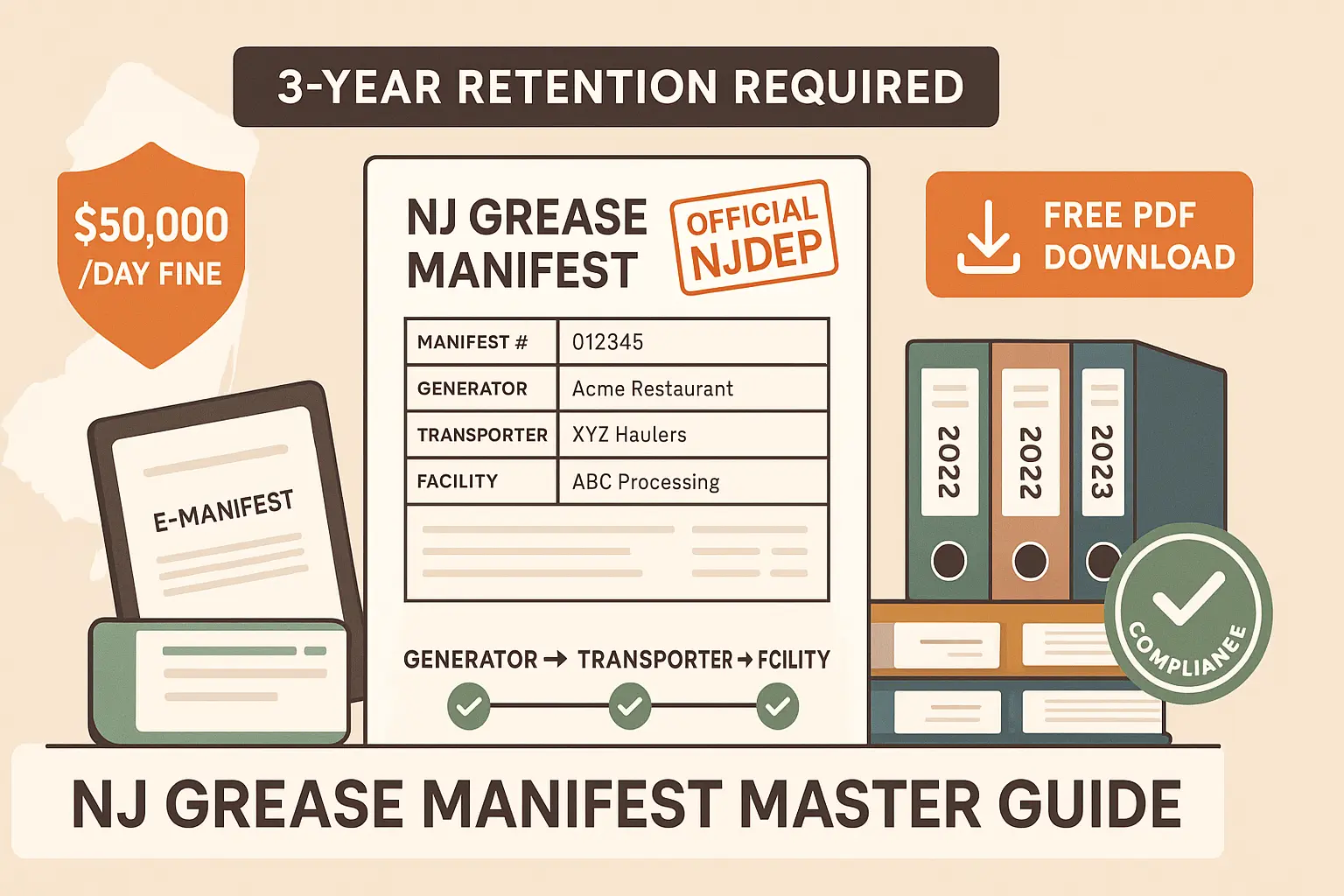Table of Contents
NJ Grease Manifest 101 What It Is & Who Needs It
Every load of grease trap waste or used cooking oil that leaves your kitchen must travel with a New Jersey Department of Environmental Protection (NJDEP) manifest. The form tracks the waste from your fryer or interceptor to an authorized recycling or disposal facility, creating a legal chain of custody that health inspectors request first during audits. Restaurants, hotels, colleges, and food courts any site producing FOG fall under the rule. Keeping an accurate manifest protects you if a transporter dumps illegally and the trail leads back to your address.
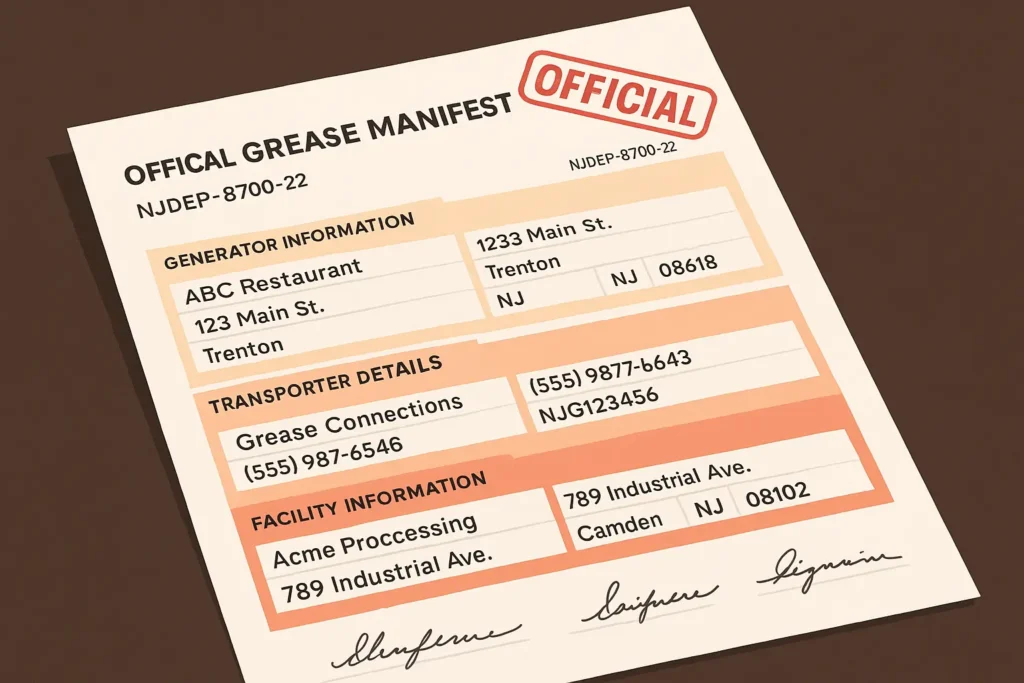
Why It Matters The $50,000 a Day Risk
NJ law authorizes civil penalties of up to $50,000 per violation per day for missing or fraudulent manifests. Local sewer authorities add their own fines some towns levy $1,000 per occurrence. Repeat offenses can trigger facility shutdowns or criminal charges. Inspectors also check cleaning frequency (every six months minimum in many boroughs). The takeaway: paperwork is cheaper than penalties.
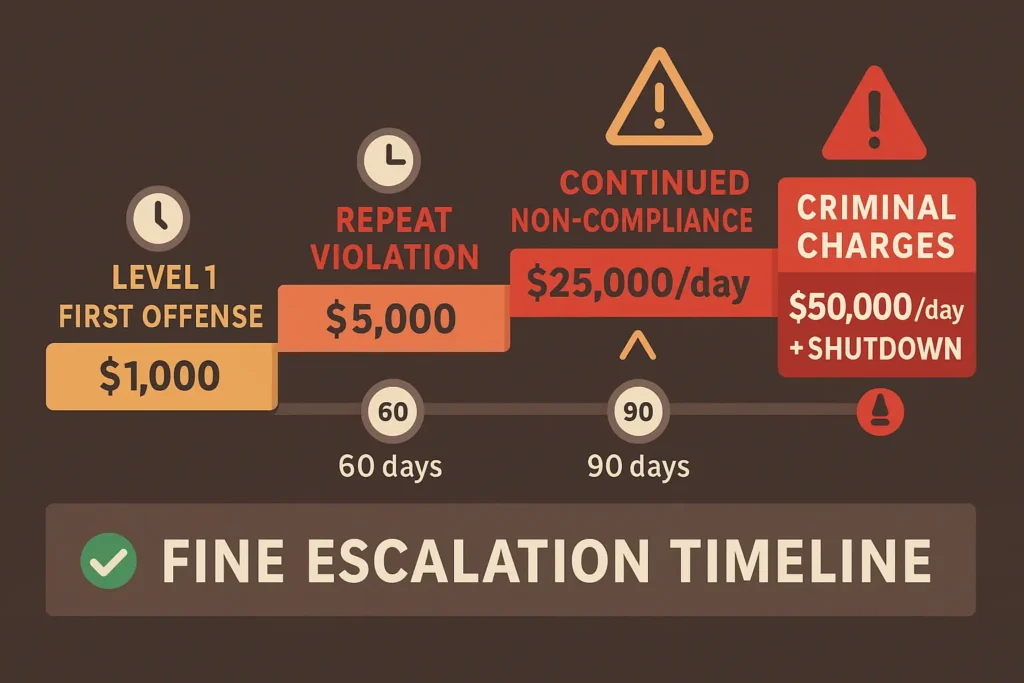
Download the Official NJ Grease Manifest Free PDF
State agencies no longer mail pre printed manifests; you must download or buy them. Click the button below for a fillable PDF that matches NJDEP requirements and includes triplicate printing instructions. (We mirror the latest EPA 8700 22 layout so you can order carbonless pads at any print shop.)
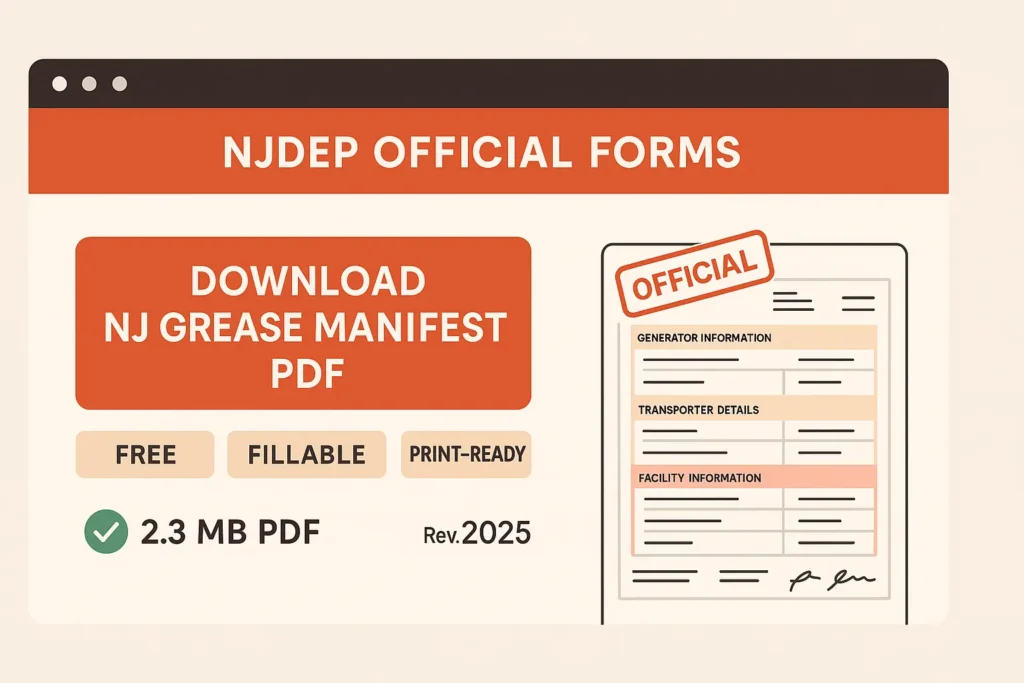
Walk Through Filling Out Every Box Correctly
- Generator Information Use your facility’s legal name, FEIN, and NJDEP Site ID if assigned.
- Waste Description Check “Grease Trap Waste” or “Used Cooking Oil”; describe volume in gallons.
- Transporter Details Record company name plus six digit DEP transporter number you confirmed in DataMiner.
- Destination Facility List the recycling plant or wastewater utility and its permit number.
- Signatures You sign at pickup; the used collection company signs on receipt; the facility signs at delivery. All parties keep a copy.
Pro tip from our field techs: Snap a photo of the signed manifest before it leaves the dock phones don’t smudge ink during a rainy midnight pickup.
Table 1 Required Manifest Fields at a Glance
| Field | What to Enter |
|---|---|
| Generator name & address | Legal entity on business license |
| NJDEP Site ID | If issued; leave blank otherwise |
| Waste type | “Grease Trap Waste” or “Used Cooking Oil” |
| Quantity | Gallons, rounded to whole numbers |
| Transporter & DEP No. | Verify via public lookup |
| Destination facility | Name & permit ID |
| Signatures | Generator, transporter, facility |
Recordkeeping Mastering the 3 Year Rule
NJDEP requires generators and transporters to keep each manifest for at least three years from the pickup date. Passaic Valley Sewerage Commission extends that to five in its service area. Best practice is to file manifests the same day they arrive store paper originals in chronological binders and scan PDFs to a cloud folder keyed by pickup date.
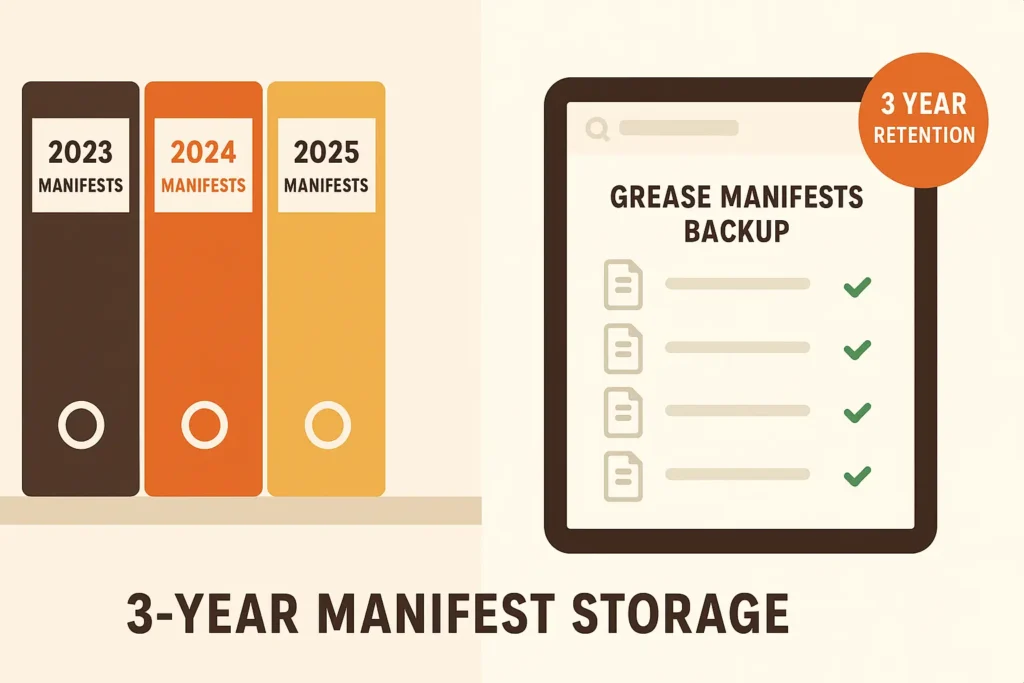
Transporter Number Lookup Verify Before They Load
Only firms with an active NJDEP “Vehicle/Transporter ID” may haul grease. Search DataMiner’s vehicle registration database, enter the six digit number printed on the truck decal, and confirm that the status reads “Active” with the correct waste codes. If the number is missing or expired, refuse service your manifest is invalid without it. Bill S 3437 also obligates transporters to leave you a copy of the signed manifest at pickup.
Common Mistakes & How to Dodge Them
- Wrong waste code Listing “yellow grease” for interceptor sludge triggers rejection at treatment plants.
- Illegible signatures Inspectors treat unreadable scrawls as missing data and issue NOVs.
- Totals in decimals The manifest only accepts whole gallons.
- Lost copies Failing to replace a lost pink copy within 30 days can cost thousands.
Table 2 Top Violations & Penalties
| Violation | Potential Fine |
|---|---|
| No manifest on file | Up to $50,000/day |
| Transporter not registered | Up to $5,000 first offense |
| Incomplete log sheets | Local fines $100 to $1,000 |
Digital vs Paper Future Proof Compliance
Electronic manifests are legal if they capture identical fields and signatures, but NJ inspectors still prefer a paper copy on site. Use a tablet to fill the PDF, sign with a stylus, then print one carbonless set for the driver. Store encrypted backups in the cloud; this dual system satisfies both auditors and disaster recovery checklists. Grease Connections syncs each pickup ticket to our customer portal so you can download any manifest within seconds during a surprise inspection.
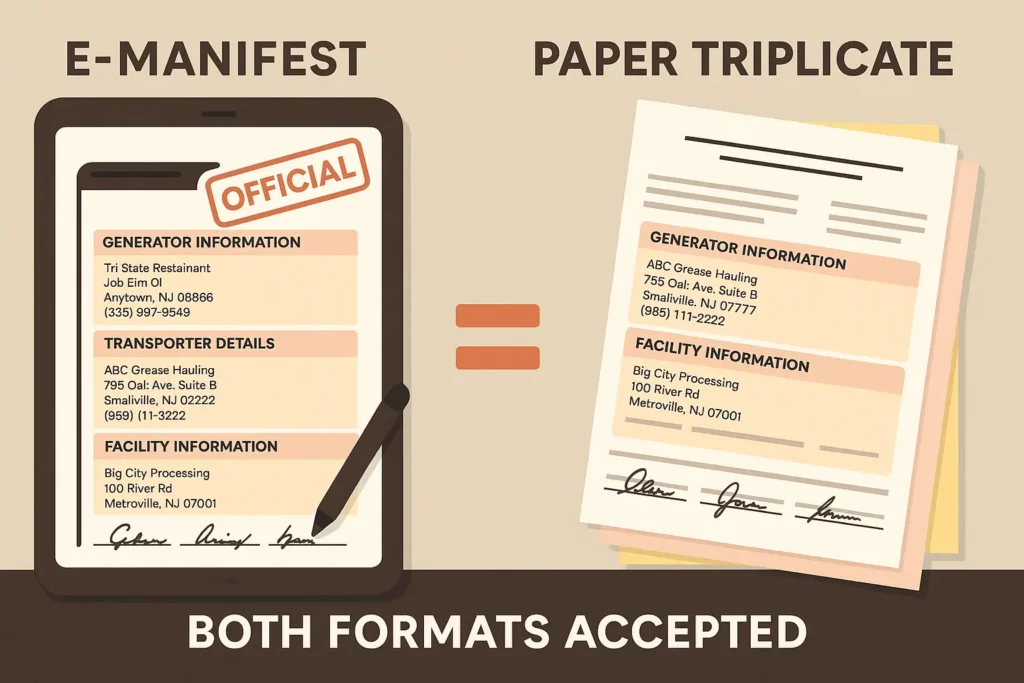
Why Grease Connections Remains the Easy Choice
Grease Connections is the only used collection company that pairs licensed hauling with in house compliance coaching no subcontractors, no lost paperwork. We preload your business details into every manifest, flag transporter ID renewals 30 days early, and archive digital copies for the entire five year retention window. Our clients have logged zero manifest related fines since 2013, because we obsess over the details so you can focus on service not sewage. Ready to stop worrying? Let’s schedule your first compliant pickup.
Key Takeaways
- Download the current NJ grease manifest and keep copies for three years.
- Verify transporter DEP numbers before loading waste.
- Incorrect or missing manifests can cost up to $50,000 per day.
- Grease Connections automates the paperwork, protecting your bottom line.
Content last reviewed June 24 2025; regulations verified through NJDEP and NJ Legislature sources.

